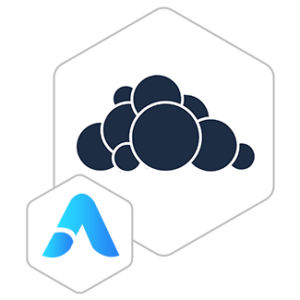ownCloud VM by Anarion Technologies
ownCloud is an open-source software platform designed for secure file synchronization, sharing, and collaboration. It enables users to store, manage, and access their files from any device, ensuring seamless connectivity across desktops, tablets, and smartphones. With ownCloud, you can easily share files and folders with colleagues or external partners, facilitating collaborative work through real-time editing and version control.
The platform offers robust security features, including end-to-end encryption, password protection, and two-factor authentication, ensuring that your data remains safe and private. ownCloud supports various storage backends, allowing integration with local storage, external hard drives, and cloud storage services like Amazon S3 and Microsoft Azure.
Moreover, ownCloud is highly customizable, with a vast ecosystem of apps and plugins that extend its functionality. You can enhance ownCloud with additional features such as calendar and contact management, collaborative document editing, and automated workflows. As an open-source solution, ownCloud gives organizations the flexibility to host their own instance, providing complete control over their data and compliance with regulatory requirements.
Ideal for both personal and enterprise use, ownCloud empowers users to create a centralized hub for their digital assets, enhancing productivity and collaboration while maintaining stringent data security standards.
Disclaimer : This VM offer contains free and open source software. Anarion Technologies does not offer commercial license of the product mentioned above. All product and company names are trademarks™ or registered® trademarks of their respective holders. Use of them does not imply any affiliation with or endorsement by them.
To subscribe to this product from Azure Marketplace and initiate an instance using the Azure compute service, follow these steps:
1. Navigate to Azure Marketplace and subscribe to the desired product.
2. Search for “virtual machines” and select “Virtual machines” under Services.
3. Click on “Add” in the Virtual machines page, which will lead you to the Create a virtual machine page.
4. In the Basics tab:
- Ensure the correct subscription is chosen under Project details.
- Opt for creating a new resource group by selecting “Create new resource group” and name it as “myResourceGroup.”
5. Under Instance details:
- Enter “myVM” as the Virtual machine name.
- Choose “East US” as the Region.
- Select “Ubuntu 18.04 LTS” as the Image.
- Leave other settings as default.
6. For Administrator account:
- Pick “SSH public key.”
- Provide your user name and paste your public key, ensuring no leading or trailing white spaces.
7. Under Inbound port rules > Public inbound ports:
- Choose “Allow selected ports.”
- Select “SSH (22)” and “HTTP (80)” from the drop-down.
8. Keep the remaining settings at their defaults and click on “Review + create” at the bottom of the page.
9. The “Create a virtual machine” page will display the details of the VM you’re about to create. Once ready, click on “Create.”
10. The deployment process will take a few minutes. Once it’s finished, proceed to the next section.
To connect to the virtual machine:
1. Access the overview page of your VM and click on “Connect.”
2. On the “Connect to virtual machine” page:
- Keep the default options for connecting via IP address over port 22.
- A connection command for logging in will be displayed. Click the button to copy the command. Here’s an example of what the SSH connection command looks like:
“`
ssh azureuser@10.111.12.123
“`
3. Using the same bash shell that you used to generate your SSH key pair, you can either reopen the Cloud Shell by selecting >_ again
or going to https://shell.azure.com/bash.
4. Paste the SSH connection command into the shell to initiate an SSH session.
Usage/Deployment Instructions
Anarion Technologies – ownCloud
Note: Search product on Azure marketplace and click on “Get it now”
Click on Continue
Click on Create
Creating a Virtual Machine, enter or select appropriate values for zone, machine type, resource group and so on as per your choice.
After Process of Create Virtual Machine. You have got an Option Go to Resource Group Click Go to Resource Group
Copy the Public IP Address
Use the browser to access the application at http://”instance ip address”
Login Creds
Username : admin
Password: admin
Click on Login
Incase Asking Database Creds
Database : owncloud_db
Username: owncloud_user
Password: Admin@123
Login Creds
Username : admin
Password: admin
You now have a working instance of ownCloud, running on
Ubuntu 20.04.
`
ThankYou…




